When it comes to mattresses, there comes a time when swapping the old for the new becomes necessary. When should you replace your mattress? There are a few things to consider. Maybe you got a new bed or partner, moved to a new home, or your mattress is old. These factors can affect how long it lasts. In this article, we will explore the key considerations that can influence the lifespan of a mattress, empowering you to make an informed decision about how often you should replace your mattress and when to bring in a replacement.
The Mattresses Life Span
Generally, according to the Sleep Foundation, a mattress should be replaced every six or eight years. A mattress’s lifespan depends on how often you use it, the type of mattress, and if you use a mattress protector. Our high-quality mattresses come with a 10-year guarantee, showing their durability. It’s important to remember this.
As mattresses get old, they can slowly wear out or suddenly break down, as many mattresses near the end of their life. When you buy a mattress, knowing how long it will last can help you plan when to buy a new one.
| Material/Type | Expected Lifespan |
| Memory Foam | 10-15 years |
| Innerspring | 5.5-10 years |
| Hybrid | 6-7.5 years |
| Latex | 8+ years |
| Airbeds | 8+ years |
When to replace your mattress
 Replacing your mattress at the right time helps you sleep well. The average lifespan of a mattress can vary depending on the materials used. Let’s explore what factors influence the expected durability of different materials and mattress types:
Replacing your mattress at the right time helps you sleep well. The average lifespan of a mattress can vary depending on the materials used. Let’s explore what factors influence the expected durability of different materials and mattress types:
Memory foam mattress
Regularly turning a memory foam mattress can extend its life to 10-15 years if properly cared for. Look for one made of higher-quality materials with a dense and supportive foam structure.
Innerspring mattresses
Typically, traditional innerspring mattresses last between five and a half to 10 years. Properly maintained furniture can last for a very long time. You can keep it, clean it regularly, and flip it if it’s meant to be flipped.
Hybrid mattress
Hybrid mattresses blend different materials. They mix memory foam and innerspring coils. They last about 6 to 7.5 years on average. New mattresses last longer, depending on their coil system and base foam materials. Taking good care of the mattress can contribute to a longer mattress lifespan.
Latex beds have a higher price due to their durability. Natural or organic latex mattress varieties tend to be even more durable. Many latex mattresses with a warranty can last for years, some even up to 25 years.
Airbeds mattress
Airbeds have air chambers you can adjust to make them more comfortable. This works for the whole mattress or just one side if it’s a hybrid. They often come with convenient remote controls for easy adjustments. Airbeds cost more, but they are made with good materials and usually last at least eight years. However, occasional equipment breakdowns can occur, leading to potentially expensive repairs.
Your mattress won’t last forever. To decide when to replace it, know how long it should last and what affects its lifespan. Consider its quality and materials when shopping for a new one. Remember, how you use and care for your mattress can affect how long it lasts.
Factors Affect Mattress’s Lifespan
Several factors play a vital role in determining the lifespan sleep quality of a mattress. If you have a $250 bed or a fancy mattress, certain factors affect when you should replace it.
Mattress Material:
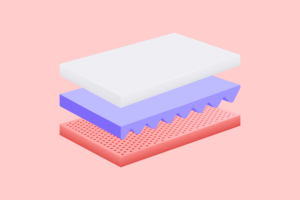 The materials used to make a mattress affect how long it lasts. Cheap spring mattresses may sag, while memory foam mattresses sometimes can get body impressions too. Hybrid mattresses have some problems, but they use good quality materials, so they last longer. Latex mattresses last a long time, with more than eight years in the mattress industry.
The materials used to make a mattress affect how long it lasts. Cheap spring mattresses may sag, while memory foam mattresses sometimes can get body impressions too. Hybrid mattresses have some problems, but they use good quality materials, so they last longer. Latex mattresses last a long time, with more than eight years in the mattress industry.
To predict mattress type and durability based on materials, certain indicators are helpful. A lower coil gauge is better for the innerspring and hybrid mattresses. Foam mattresses need denser foam. For polyfoam, it should be 1.7+ pounds per cubic foot (PCF), and for memory foam, it should be 5+ PCF. It’s also advisable to opt for natural latex rather than synthetic latex.
Maintenance & Care:
 Proper maintenance and care significantly extend the lifespan of a mattress. Rotate your mattress every three months (unless the manufacturer advises otherwise). Your mattress regularly. Doing so will help the mattress wear evenly. Using a mattress protector safeguards against spills, stains, and potential damage.
Proper maintenance and care significantly extend the lifespan of a mattress. Rotate your mattress every three months (unless the manufacturer advises otherwise). Your mattress regularly. Doing so will help the mattress wear evenly. Using a mattress protector safeguards against spills, stains, and potential damage.
Sleeper Size & Weight:
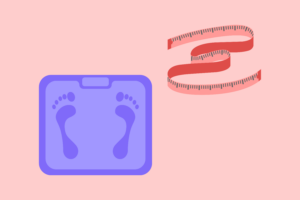 Sleepers’ size, sleeping position, and weight impact how quickly a mattress degrades. Heavier individuals exert more pressure on older mattresses, leading to faster sagging. In contrast, lightweight sleepers exert less impact. A mattress used by a couple gets more worn out than a mattress used by one person, especially if you want a good night’s sleep.
Sleepers’ size, sleeping position, and weight impact how quickly a mattress degrades. Heavier individuals exert more pressure on older mattresses, leading to faster sagging. In contrast, lightweight sleepers exert less impact. A mattress used by a couple gets more worn out than a mattress used by one person, especially if you want a good night’s sleep.
Children & Pets:
 If you sleep with kids or pets, you need a new mattress more often. The weight and damage from kids or pets can make your mattress last less. A mattress’ lifespan can also be shortened as a result of it.
If you sleep with kids or pets, you need a new mattress more often. The weight and damage from kids or pets can make your mattress last less. A mattress’ lifespan can also be shortened as a result of it.
If you regularly clean your mattress properly and consider some factors, it will last longer. Choose a good mattress and take care of it. Kids or pets in bed can affect it too.
Sign up To Change Your Mattress
Many signs may indicate it’s time to replace your mattress with a new one. These signs include:
Changes in your body:
If you gained weight and your mattress feels too soft, try changing to a firmer one for better support. If you lost weight and your old mattress feels too hard, you can get a softer bed that cushions your hips, back, and shoulders for more comfort.
Waking up with back pain:
A saggy or uncomfortable mattress can make you wake up with a sore back, neck, and joints. To improve your sleep, look for a mattress supporting different body parts. This may help with some of the sleep problems you’re having. If your back hurts a lot, it’s best to ask a physiotherapist for advice before choosing a new mattress.
Sleeping hot and feeling uncomfortable:
Do you usually feel too hot when you go to bed at night? Your mattress might not be getting rid of heat properly if you do. Sweating too much can cause stains on the pillow top of your mattress and help dust mites grow. Luckily, most new mattresses use special materials to stay cool and keep away bacteria like copper. This helps prevent heat buildup and reduces the number of mites living on latex mattresses.
Increased allergy symptoms:
Does your old mattress make you sneeze, cough, or itch, especially when you wake up or sleep? If so, it could be causing your asthma symptoms to worsen. Mattresses collect dust mites over time. Dust mites eat dead skin cells and leave behind droppings that can cause allergies. Replacing your old mattress can make you feel better and help you get a better night’s sleep well.
Physical wear and tear:
If your mattress looks old with tears, dents, or stains, it is time to replace it. These signs mean your mattress no longer supports or comforts you enough. An old mattress can collect germs and dust mites, which can also harm your overall health. A mattress can turn yellow with age or from sweat and liquid spills.
If you notice any early or obvious signs of wear in your mattress, take action to keep it in good condition. This helps you sleep better and stay healthy.
How To Keep Your Mattress Last Longer
You should follow a few guidelines if you want your new mattress to stay in good condition. Here are tips for keeping your new mattress in good condition. They’ll help you use the premium materials for longer.
 Rotation: Most mattresses can be rotated to prevent uneven wear and sagging. This is beneficial and recommended. Rotate your mattress every few months to keep it level and comfortable. This distributes pressure and your body weight evenly. Specialized support zone mattresses are not meant to be rotated, as they are designed for specific body alignment.
Rotation: Most mattresses can be rotated to prevent uneven wear and sagging. This is beneficial and recommended. Rotate your mattress every few months to keep it level and comfortable. This distributes pressure and your body weight evenly. Specialized support zone mattresses are not meant to be rotated, as they are designed for specific body alignment. Flipping: Modern mattresses are made to have one side for support and another side that’s soft. Before attempting to flip your mattress, check the manufacturer’s instructions. If flipping is recommended, make sure to also rotate the mattress shopping using it. To promote even wear over time, every side and end of the mattress gets equal exposure.
Flipping: Modern mattresses are made to have one side for support and another side that’s soft. Before attempting to flip your mattress, check the manufacturer’s instructions. If flipping is recommended, make sure to also rotate the mattress shopping using it. To promote even wear over time, every side and end of the mattress gets equal exposure. Airing and cleaning: Keeping your mattress fresh is important for its hygiene and condition. This involves airing and cleaning it regularly. Regularly vacuuming the surface of the mattress helps remove dust, dirt, and allergens. The mattress can be treated with baking soda to absorb moisture and smells. After a few hours, vacuum it up. Remove the mattress cover and place the mattress in direct sunlight. A mattress that receives UV rays from the sun will naturally be refreshed and kill bacteria.
Airing and cleaning: Keeping your mattress fresh is important for its hygiene and condition. This involves airing and cleaning it regularly. Regularly vacuuming the surface of the mattress helps remove dust, dirt, and allergens. The mattress can be treated with baking soda to absorb moisture and smells. After a few hours, vacuum it up. Remove the mattress cover and place the mattress in direct sunlight. A mattress that receives UV rays from the sun will naturally be refreshed and kill bacteria. Protection: Protect your mattress by using a good quality mattress protector. It can help prevent spills, stains, and sweat from damaging your bed. A mattress protector stops liquids and dirt from getting to your mattress. Also, choose a protector you can easily wash in the machine to keep it clean with less effort.
Protection: Protect your mattress by using a good quality mattress protector. It can help prevent spills, stains, and sweat from damaging your bed. A mattress protector stops liquids and dirt from getting to your mattress. Also, choose a protector you can easily wash in the machine to keep it clean with less effort.
If you use these rules, your mattress will last longer. You will have a good and supportive bed to sleep on for many years.
FAQ’s
What are the signs that indicate it’s time to replace my mattress?
Some common signs that it’s time to replace your mattress include sagging or visible indentations, loss of support, uncomfortable sleep, waking up with aches and pains, allergies or asthma symptoms worsening, and overall mattress deterioration.
Can I extend the lifespan of my mattress?
Yes, you can take certain measures to extend the lifespan of your mattress. These include using a mattress protector to keep it clean and free from spills or stains, rotating the mattress regularly, avoiding jumping or placing excessive weight on it, and following the manufacturer’s care instructions.
Is it necessary to replace a mattress if it’s still comfortable?
Even if your mattress feels comfortable, it may not provide adequate support or maintain proper alignment for your body. Over time, the materials can break down, leading to reduced support and potential discomfort. It’s recommended to consider replacing your mattress within the recommended lifespan.
Can a mattress affect my sleep quality and health?
Yes, an old or worn-out mattress can negatively impact your sleep quality and health. It may contribute to poor sleep posture, increased tossing and turning, and inadequate spinal alignment, which can result in back pain, muscle stiffness, and sleep disturbances.
Can regular mattress maintenance help prolong its lifespan?
Yes, regular maintenance can help extend the lifespan of your mattress. This includes rotating the mattress every 3-6 months, using a mattress protector, keeping the mattress clean, and addressing stains or spills promptly.


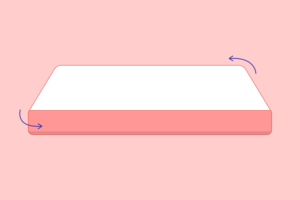 Rotation:
Rotation: 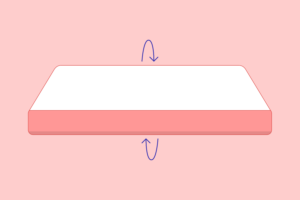 Flipping:
Flipping: 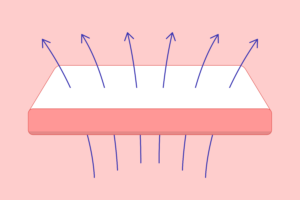 Airing and cleaning
Airing and cleaning Protection
Protection